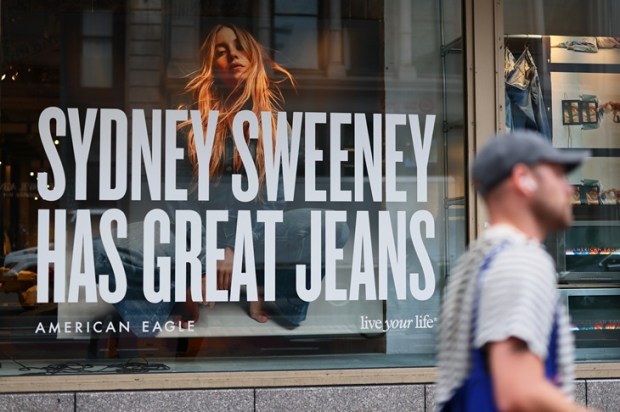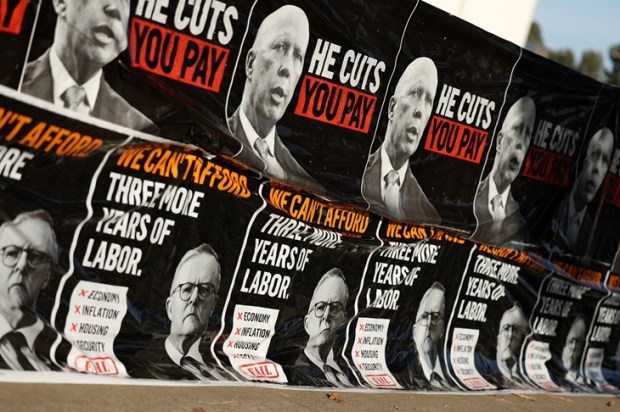Disney isn’t having an easy time. The company has produced flop after flop in recent years, with few exceptions, and has done so much damage to its brand that it may soon be beyond repair.
This has never been more apparent than with their latest live-action remake, Snow White, due to be released today. The backlash against this film’s marketing appears to have marked a major turning point in public opinion of Disney, and of Hollywood more generally.
The public response to Disney is perhaps the best Litmus test of general audience sentiment towards the movie industry, given the entertainment giant owns some of the most popular and successful film companies of all time, namely Marvel and Lucasfilm, not to mention Pixar. Disney’s own impressive collection of family films used to speak for itself, but after the conglomerate purchased these companies, Disney seemed unstoppable.
Fast forward half a dozen years, and instead of achieving the resounding success that seemed all but certain, Disney’s over-reliance on (poorly written) prequels and sequels, largely unsuccessful live-action remake project and, perhaps most crucially, the increasing over-feminisation and ‘Wokeification’ of its products, drove many fans away.
Added to all this, Disney executives and others associated with its films began accusing fans of being ‘toxic’, amongst other epithets, apparently to try to account for box office failures and backlash against unpopular decisions, such as including a lesbian character in the Toy Story spinoff, Lightyear (which bombed at the box office).
Despite all this, the general public still seemed content to give the House of Mouse the benefit of the doubt – until a couple of years ago. While it’s true that the Last Jedi (2017) divided Star Wars fans and destroyed much of their optimism and goodwill towards Disney, and that news outlets have been blaming ‘superhero fatigue’ on dwindling Marvel box office numbers ever since Avengers: Endgame (2019), the real catalyst appears to have been Snow White.
The dominoes began to topple after some footage from the film set leaked in July 2023, showing what appeared to be Snow White with a bizarre motley of colourfully dressed, racially-diverse men and women, and only one actual dwarf. The footage, accompanied by the memorable Daily Mail headline, Snow White and the Seven… Politically-Correct Companions? immediately went viral.
Public sentiment towards this movie was already ambivalent, given half-Colombian actress Rachel Zegler was slated to play the infamously white-skinned lead, yet it was the leaked images that made the movie seem like a complete joke, spelling the beginning of the end of general goodwill towards the company.
Not only did potential audiences have a poor reaction to the actress in interviews, she openly criticised the 1937 classic her film was based on, labelling it outdated and problematic, while confirming audience fears that this remake would be yet another attempt by Disney to appease Woke activists by turning its cherished heroine into an ass-kicking girlboss who don’t need no man to save her.
To many, all of this seemed to prove beyond a doubt that the Walt Disney Company had become a joke; a parody of itself. The general public could apparently take bad writing, creatively bankrupt sequels and prequels, whitewashing of older film franchises, insults, and even a certain amount of woke messaging, for a time at least, perhaps in the hope that all this was temporary, and that Disney would eventually return to form.
What it could apparently not take was seeing Disney confirmed as the joke it was purported by many to have become. And it had done this to itself, because of its slavish adherence to an ideological agenda that dictates that racial minorities be cast in historically British or European roles; that female characters be deified and male ones demonised; that LGBT propaganda should be inserted into children’s entertainment, and that it is (somehow) offensive to cast dwarf actors as characters that are dwarves.
The public made its sentiments known in the likes and comments sections of every Snow White trailer and clip released on YouTube. The film’s official trailer has garnered a staggering 1.5 million dislikes, compared to just 52,000 likes. The teaser trailer’s ratio is even worse, with 1.5 million dislikes to just over 10,000 likes.
Perhaps more importantly for Disney, audiences have expressed their feelings with their wallets, too.
Marvel’s most recent release, Captain America: Brave New World, has proved a sizeable flop, with domestic audiences dropping off by almost 70 per cent in its second weekend. This performance fell well behind 2023’s Ant-Man and the Wasp: Qantumania, which was, at the time, the lowest-grossing Marvel sequel ever released.
Lucasfilm has been in even worse decline. Its last cinematic release, Indiana Jones and the Dial of Destiny (2023), was a gargantuan flop, losing an estimated USD$143 million. It also marked the first theatrical release from Lucasfilm since the much-disparaged Rise of Skywalker, four years earlier (and we haven’t seen a theatrical Star Wars release since).
As for original Disney+ TV shows, Lucasfilm has released failure after failure, from The Book of Boba Fett (2021) to The Acolyte (2024). The former garnered an audience score of 49 per cent on Rotten Tomatoes, while the latter sits at a devastating 19 per cent.
Star Wars fans have so completely tapped out of Disney Lucasfilm, the company had to face the embarrassment of closing down its Star Wars-themed Galactic Starship hotel just a year after it opened at Disney World, after failing to attract customers and enduring widespread criticism from the few who went.
As for Disney and Pixar, original films Strange World (2022), Elemental and Wish (both 2023) were all major flops, while last year’s prequel Mufasa: The Lion King under-performed at the box office.
Although the company did experience some recent success, with Deadpool & Wolverine and Inside Out 2 each raking in well over USD$1 billion globally, while Moana 2 made just over $1 billion, these wins stand out as islands in a sea of losses for Disney.
While Disney isn’t the only major film studio that is failing, its problems are symptomatic of the greater malaise in Hollywood. Other studios are experiencing a similar decline in interest and revenue from their superhero films. Last year’s Madame Web had an abysmal opening weekend of USD$17.6M domestically, and was apparently such a disaster, lead actress Dakota Johnson dropped her agency days after the first trailer released.
Meanwhile, Warner Bros’ The Flash (2023), starring controversial actor Ezra Miller, became the worst box office flop in superhero movie history.
One might argue that this is the result of superhero fatigue. However, given the success of recent superhero film Deadpool & Wolverine and HBO TV series The Penguin, I would argue that it is not superhero fatigue, but rather, Woke ideology fatigue, or just plain bad movie fatigue.
People have become so fed up with seeing political ideology shoved into almost every piece of entertainment released, not to mention poor writing and a noticeable dearth of original media, many have simply lost interest and stopped watching.
This malaise has been well-documented online, with YouTube channels like the Critical Drinker and Nerdrotic exploding in popularity over recent years by making honest analyses of the state of Hollywood, while giving audiences a voice by representing their views.
In fact, things have gotten so bad in Tinseltown, many viewers say they prefer to watch these reviews rather than the films themselves, as they find the former more entertaining, and can save themselves the pain and expense of going to see a bad movie.
While Hollywood appears to have begun to wake up at last – Disney, for example, may have removed some LGBT content from Inside Out 2 ahead of the film’s release according to reports – it’s clear that the message has not penetrated far enough.
Warner Bros has incensed Harry Potter fans by announcing the casting of black actor to play Severus Snape in its upcoming television series based on the books.
As many have pointed out on X (formerly Twitter) and other social media platforms, JK Rowling clearly described Snape as white-skinned, and even released several of her own drawings of the character confirming the fact. The character was famously played by the late, great Alan Rickman, who was a dead ringer for the character as described in the book series. The outrage and disappointment expressed by fans is understandable, given Warner Bros had previously announced that its show would be a ‘faithful adaptation’ of the books.
Many see this as clear evidence that Hollywood has not learned its lesson, either from audience feedback or failing box office numbers that have dwindled every year since the Covid lockdowns. With competition from YouTube, podcasts, social media, and independent media companies, like Angel Studios, many are asking seriously whether Hollywood can survive much further into the 21st Century.
Has the story of Tinseltown finally reached its conclusion? Only time will tell, but for the time being, many are content to sit back and see just how badly films like Snow White will fail – and then watch the reviews on YouTube.
Anna Hitchings is a freelance writer based in Sydney.

























